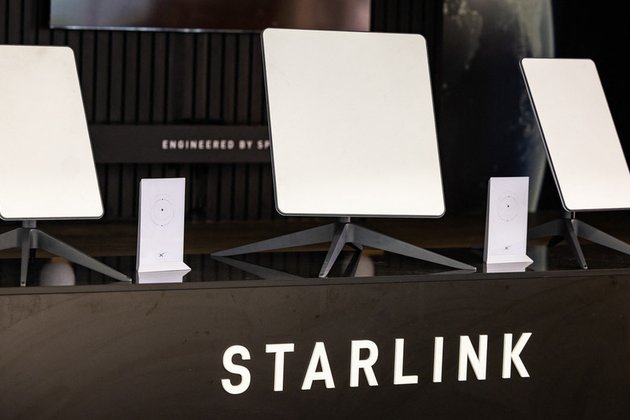

Starlink will reportedly sell terminals and connectivity kits in several countries on the continent
Elon Musk’s SpaceX will partner with e-commerce platform Jumia Technologies to distribute satellite terminals and connectivity kits in Africa, Bloomberg reported on Tuesday.
Jumia, which counts Pernod Ricard SA and Goldman Sachs Group as among its investors, said it will sell Starlink kits on its sites in the coming weeks, starting with Nigeria. It will then begin sales in Kenya before rolling out distribution to the rest of Africa.
“We have seen Starlink do these types of deals in Southeast Asia and South America, and now Africa will also have the opportunity to access the fast-speed internet services,” Jumia chief commercial officer Hisham El Gabry told Bloomberg.
The partnership will help Starlink expand its satellite broadband in areas that lack formal addresses and city mapping, the outlet said.
Starlink’s portable terminals are capable of connecting to low-Earth orbit satellites, and should deliver broadband services to a continent that currently has the world’s lowest internet penetration.
Jumia global head of communications Abdesslam Benzitouni told Business Daily that the partnership will not introduce a new pricing model, but that Jumia will sell the hardware kits, which consist of the Starlink dish, a mounting stand, cables, and a power source at $557, the price indicated on Starlink’s website.
Africa’s main internet providers such as MTN Group and Vodacom Group have found it difficult to expand infrastructure into remote areas.
Big tech companies have made attempts to deliver high-speed internet in Africa through creative approaches, but these efforts have proved unsuccessful, leading to a return to fiber optics and undersea cables.
Meta Platforms’ Facebook attempted to build a gigantic drone to provide high-altitude connectivity on the continent, but it was later grounded. Alphabet’s Google tried something similar with a project called Loon, using helium-filled balloons. The plan was eventually scrapped two years ago.
“We had to establish our own business models and transportation network, even mapping to a certain extent when we started building an African e-commerce business,” said El Gabry. “So we have the needed experience in navigating the retail and merchandise landscape in Africa.”
Starlink satellite technology supports services that are not possible with traditional terrestrial solutions, allowing unmodified smartphones to connect to satellites in areas with coverage gaps. According to experts, this gives it a better chance of connecting people in Africa.
For more stories on economy & finance visit RT’s business section
(RT.com)
24World Media does not take any responsibility of the information you see on this page. The content this page contains is from independent third-party content provider. If you have any concerns regarding the content, please free to write us here: contact@24worldmedia.com

A Brief Look at the History of Telematics and Vehicles

Tips for Helping Your Students Learn More Efficiently

How To Diagnose Common Diesel Engine Problems Like a Pro

4 Common Myths About Wildland Firefighting Debunked

Is It Possible To Modernize Off-Grid Living?

4 Advantages of Owning Your Own Dump Truck

5 Characteristics of Truth and Consequences in NM

How To Make Your Wedding More Accessible

Ensure Large-Format Printing Success With These Tips

4 Reasons To Consider an Artificial Lawn

The Importance of Industrial Bearings in Manufacturing

5 Tips for Getting Your First Product Out the Door